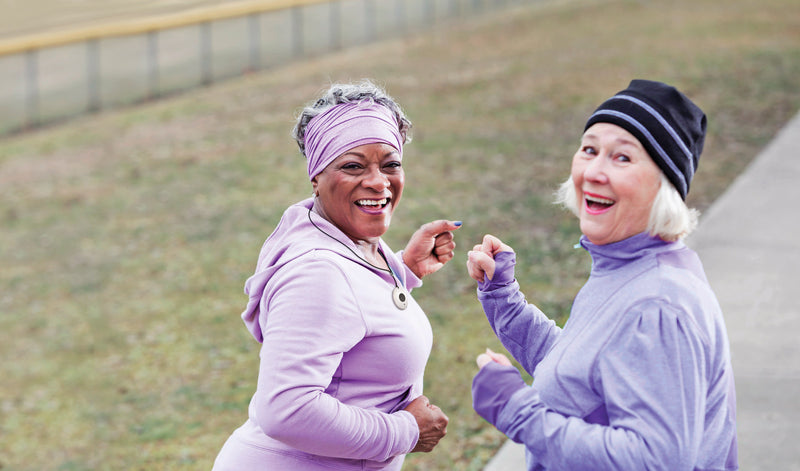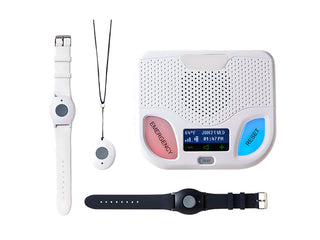Health Updates
Boosting the Immune System in Seniors: A Comprehensive Guide

As we age, our immune system undergoes changes, making seniors more susceptible to infections and illnesses. However, there are various steps seniors can take to support and boost their immune system, leading to a healthier and more resilient life. In this comprehensive guide, we will explore effective strategies and lifestyle adjustments that can help seniors enhance their immune function. From maintaining a healthy diet and engaging in regular exercise to managing stress, getting adequate sleep, and incorporating immune-boosting supplements, we will delve into practical tips and insights to support senior citizens in strengthening their immune system and promoting overall well-being.
1. Understanding the Aging Immune System
Before delving into immune-boosting strategies, it is essential to grasp how the immune system changes with age. This chapter will explore the impact of aging on the immune system, including:
- Immunosenescence: The gradual decline in immune function that occurs with age.
- Reduced Immune Response: How the aging immune system may have a slower response to infections and vaccinations.
- Chronic Inflammation: The role of chronic inflammation in age-related immune dysfunction.
- Comorbidities: How underlying health conditions can further compromise immune function in seniors.
2. Maintaining a Nutrient-Rich Diet
A balanced and nutrient-rich diet plays a vital role in supporting immune function. This chapter will focus on dietary recommendations and tips for seniors, including:
- Essential Nutrients: Identifying key vitamins, minerals, and antioxidants crucial for immune health, such as vitamin C, vitamin D, zinc, and omega-3 fatty acids.
- Incorporating Whole Foods: Emphasizing the consumption of fruits, vegetables, whole grains, lean proteins, and healthy fats.
- Hydration: The importance of staying adequately hydrated to support immune function.
- Limiting Processed Foods and Added Sugars: Understanding the negative impact of processed foods and excess sugar on immune health.
3. Engaging in Regular Exercise
Regular physical activity offers numerous benefits, including immune system enhancement. This chapter will explore exercise strategies for seniors, including:
- Types of Exercise: Incorporating a combination of aerobic exercises, strength training, and flexibility exercises.
- Safety Considerations: Understanding the importance of warming up, proper form, and appropriate intensity levels.
- Outdoor Activities: The advantages of spending time outdoors and engaging in activities like walking, gardening, and swimming.
- Low-Impact Options: Highlighting low-impact exercises such as yoga, tai chi, and water aerobics, which are gentle on the joints.
4. Managing Stress and Promoting Mental Well-being
Stress can negatively impact immune function. This chapter will explore stress management techniques for seniors, including:
- Relaxation Techniques: Incorporating practices such as deep breathing exercises, meditation, and mindfulness.
- Social Connections: Nurturing relationships, joining clubs or community groups, and engaging in social activities to reduce feelings of loneliness and isolation.
- Hobbies and Creative Outlets: Pursuing hobbies, creative activities, or learning new skills to promote mental well-being.
- Seeking Support: Encouraging seniors to seek professional help or support groups for managing stress and emotional well-being.
5. Prioritizing Quality Sleep
Adequate sleep is crucial for a healthy immune system. This chapter will provide sleep hygiene tips for seniors, including:
- Establishing a Bedtime Routine: Creating a consistent sleep schedule and engaging in relaxing activities before bed.
- Creating a Restful Environment: Ensuring a comfortable and quiet sleep environment, using supportive bedding, and minimizing distractions.
- Limiting Stimulants: Avoiding caffeine, electronic devices, and stimulating activities close to bedtime.
- Addressing Sleep Disorders: Identifying and treating common sleep disorders like insomnia or sleep apnea.
6. Incorporating Immune-Boosting Supplements
Supplements can provide an additional immune system boost. This chapter will discuss supplements commonly used by seniors, including:
- Vitamin C and Zinc: Exploring their immune-enhancing properties and appropriate dosages.
- Vitamin D: Understanding the role of vitamin D in immune health and potential supplementation for seniors with deficiencies.
- Probiotics: Examining the potential benefits of probiotics for gut health and immune function.
- Herbal Remedies: Highlighting herbs such as echinacea and elderberry, which are traditionally believed to support immune health.
A strong immune system is vital for seniors to maintain optimal health and well-being. By understanding the changes that occur in the aging immune system and implementing practical strategies like adopting a nutrient-rich diet, engaging in regular exercise, managing stress, prioritizing quality sleep, and incorporating immune-boosting supplements, seniors can effectively support and enhance their immune function. It is important to consult healthcare professionals before making any significant dietary or supplement changes, especially for individuals with pre-existing health conditions or taking medications. By taking proactive steps to strengthen the immune system, seniors can enjoy a healthier and more vibrant life, better equipped to fight off infections and maintain their overall well-being.







